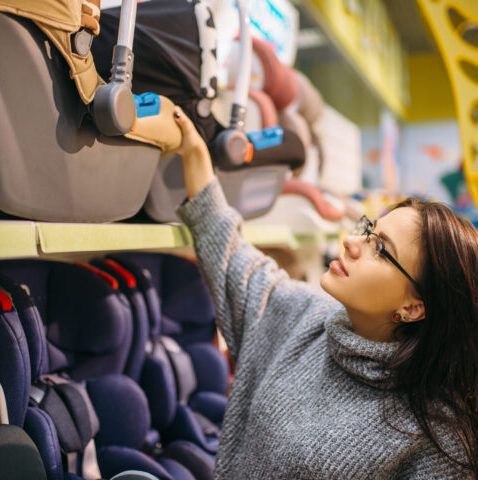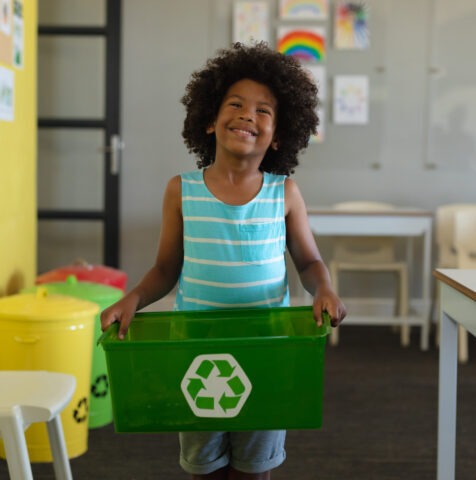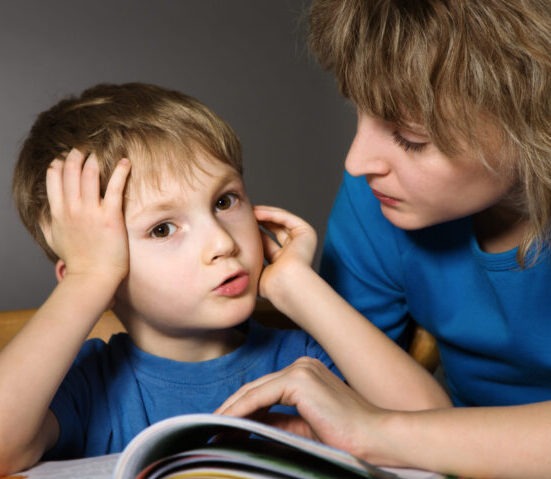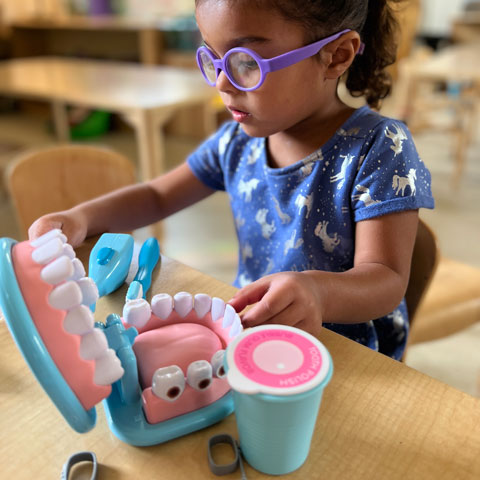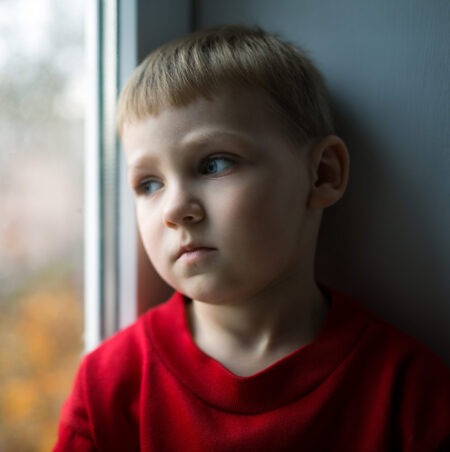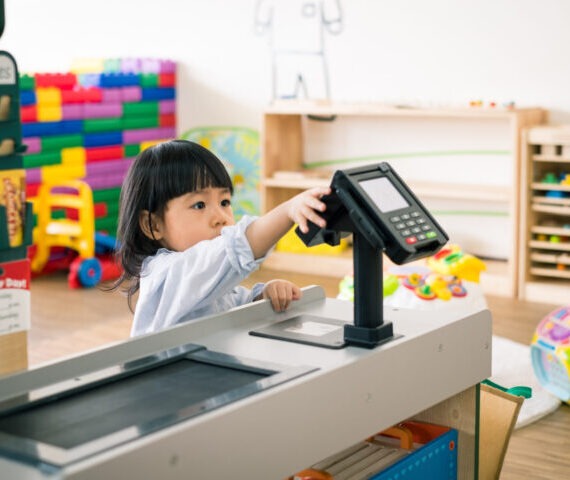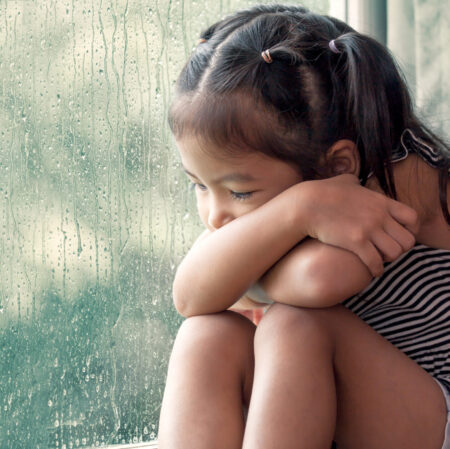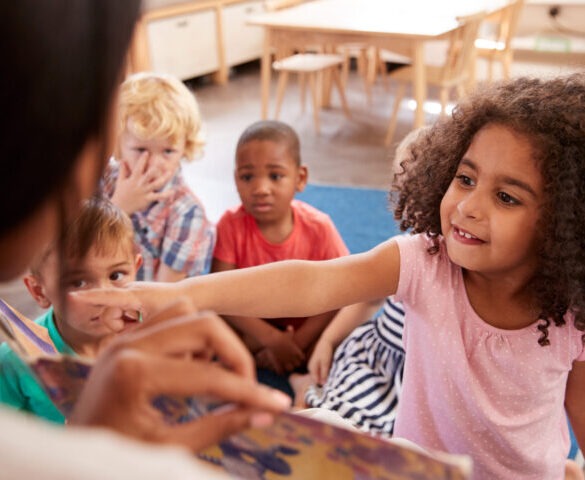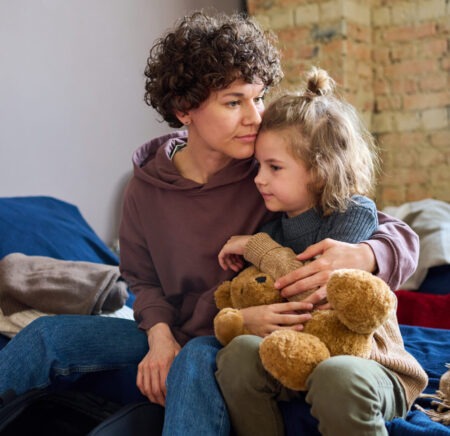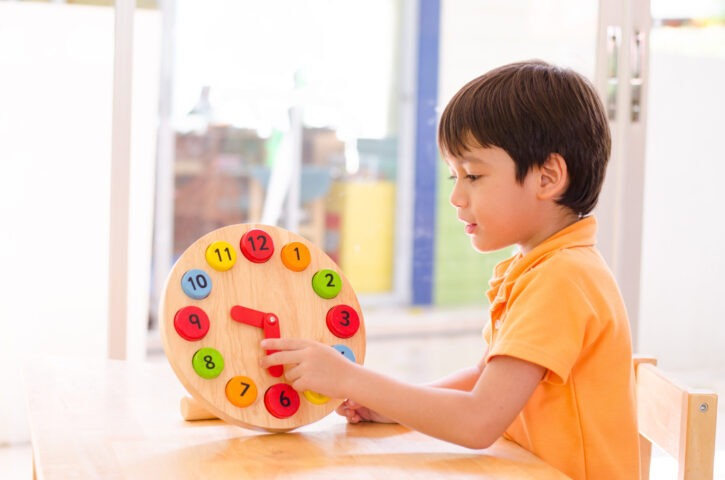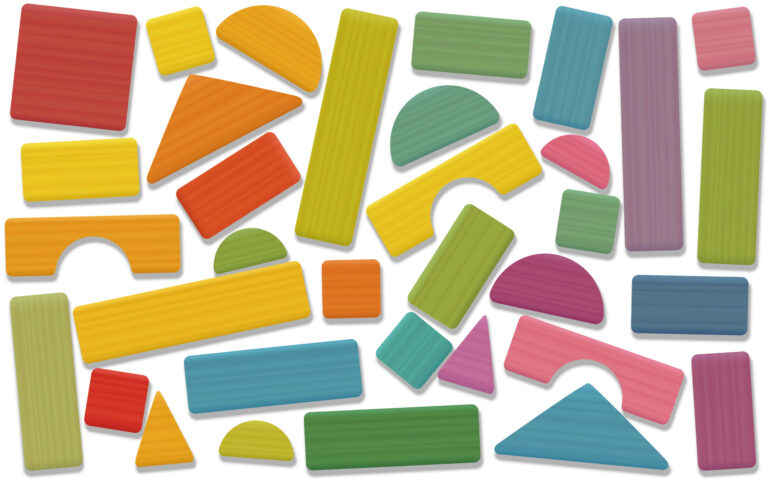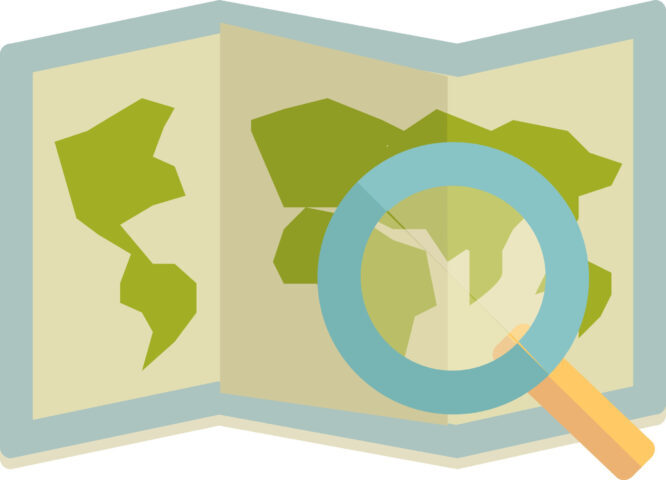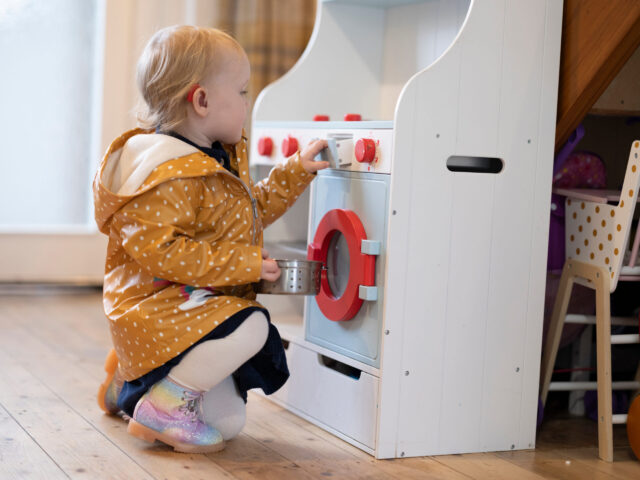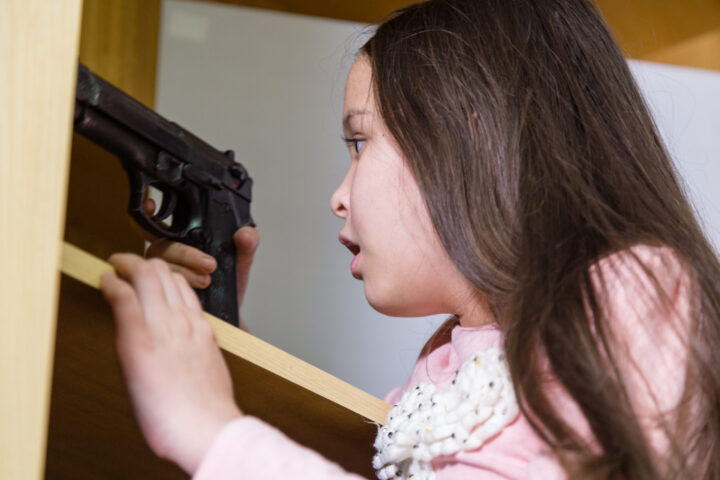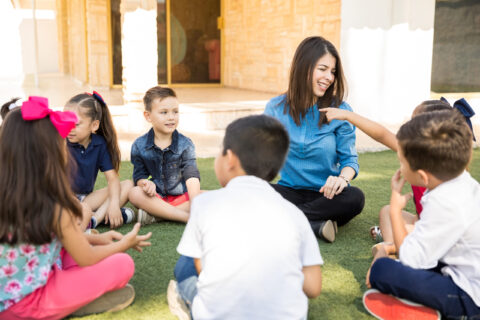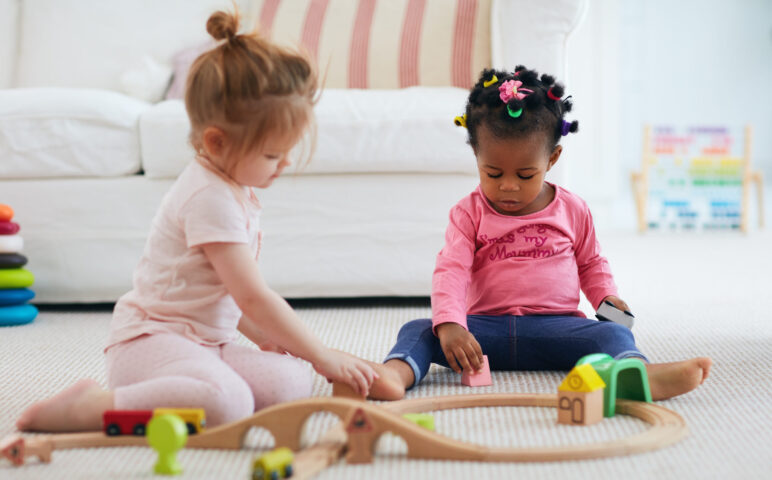-

Swimming for the Ages
Swimming looks different for different age groups. Choose swim lessons with safety and quality instruction in mind.
-

Swim Lessons for Young Children
Learning to swim is an important milestone for young children. Knowing how to survive in water is a critical life skill. Swimming builds strength, endurance, and flexibility. It is fun, relaxing, and enjoyed by individuals with and without disabilities.
-

Coding and Precoding with Young Children
This list gives educators and parents resources on teaching coding and precoding skills to young children.
-

Reggio Emilia-Inspired Classrooms and Programs
This list gives educators and parents resources about the Reggio Emilia approach used in early childhood classrooms and programs.
-

Precoding Activities for Preschoolers
Young children can learn precoding skills through games that teach taking and giving directions, turn-taking, communication, and more.
-

What Is “Reggio Emilia Inspired”?
What are you likely to see in a Reggio Emilia–inspired program?
-

Dining Away from Home with Young Children
Supporting young children as they learn to enjoy meals in new places takes some effort, but the outcome is rewarding.
-

Handwriting for Young Children
In this tool kit, we will explore why writing skills are important to young children, the stages of development that lead from pre-writing to writing, and the importance of play in learning to write.
-

Dealing with Ableism in Early Childhood Settings
“Ableism” refers to ideas and actions that devalue people with disabilities. Even in inclusive early childhood settings, sometimes families report that they or their children with disabilities encounter ableism. Learning about disabled peoples’ experiences can help educators and caregivers deal with ableism in programs for young children.
-

Additions to the Family: Help Young Children Prepare
Families add new members in several ways: the birth of a baby, adoption, fostering, or welcoming relatives who need a place to stay. Such situations will affect children already in the family, and they may need support to adjust.
-

Food Allergies and Young Children
In this episode, we talk with Dr. Ruchi Gupta and Sarah Valaika from the Center for Food Allergy & Asthma Research (CFAAR) about caring for children with food allergies in the early childhood classroom.
-

Creating Reggio Emilia-Inspired Classrooms
This Q&A gives educators answers to questions about building optimal Reggio Emilia-inspired early childhood classrooms.
-

Here a Chick, There a Chick!
The Here a Chick, There a Chick! project took place in an inclusive preschool classroom in Elmhurst, Illinois.
-

Swimming
This resource list provides information on swimming lessons and swim safety for young children.
-

Building Literacy Through Reggio Emilia Inspiration
In this episode, we interview Dr. Ali Lewis about integrating early literacy in a Reggio Emilia–inspired program.
-

Picky Eaters
This tool kit will provide information on picky eating, including why it occurs, strategies to try, actions to avoid, and how to help children with disabilities in this area.
-

Project Examples Table
This table organizes projects according to the type of classroom setting where they were completed.
-

You Belong Here: Speaking Inclusively in Early Childhood Settings
This blog will discuss strategies for teachers who are striving to use more inclusive language in early childhood classrooms.
-

The Car Project
The Car Project took place at St. George’s Episcopal School in New Orleans. Eleven infants and toddlers participated in this investigation.
-

Car Seats and Safety in the Car
This Q&A gives parents and caregivers answers to important safety questions about keeping kids safe in the car, car seat laws and recommendations, and car seat installation guidance.
-

Planning Ahead: Preparing for a Safety Drill
This blog will discuss the role of safety drills, children’s emotions about safety drills, and how teachers can prepare children in advance for safety drills.
-

Safe Sleep
This list gives educators and family members resources on how to keep infants and toddlers safe when sleeping.
-

Car Safety: In and Out of the Car
This list gives educators and family members resources on how to keep young children safe in and around vehicles.
-

Gunplay in Preschool: How Should We Respond?
This blog will explore the nuts and bolts about why gunplay happens among young children and how teachers can respond.
-

Water Safety
This list gives educators and family members resources on how to keep young children safe around water, how to prevent drowning and other accidents, and how to help children learn to swim.
-

Reduce, Reuse, Recycle
This list gives educators and family members resources on how to care for the environment by reducing, reusing, and recycling materials.
-

Using Literature for Young Children to Address Difficult Topics
Educators, caregivers, and families can find information in these resources about ways to use picture books to start conversations with children about important topics that may be hard to discuss.
-

Dental Health and Dentist Visits
This list gives educators and parents resources on children’s dental health and dentist visits with the goal of promoting good oral health.
-

The Teeth Project
The Teeth Project took place at St. George’s Episcopal School in New Orleans. Fourteen preschoolers participated in this investigation.
-

Homelessness: Research, Data, and Policy
This resource list contains information related to research, data, and policy surrounding issues of homelessness and housing insecurity.
-

Pets for the Family and for the Classroom
This list gives educators and family members resources on how care for pets, while safely and responsibly connecting animals with young children.
-

A Look at Young Children and Concepts of Gender
This blog post takes a brief look at gender, how children’s gender identity develops, and what gender expression can look like in young children.
-

Promoting Well-Being in Families Experiencing Homelessness and Housing Insecurity
The resource lists contains information about supporting the well-being of families experiencing homelessness and housing insecurity. Aspects of well being include mental health, substance abuse prevention, and parent education and employment.
-

Meeting Basic Needs of Families Experiencing Homelessness and Housing Insecurity
This resource list provides information on meeting the basic needs of families experiencing homelessness and housing insecurity. Basic needs include food, shelter, diapers, clothing, and safety.
-

Time and Sequence
This list gives educators and family members resources on how to teach the concepts of time and sequence to young children.
-

Block Play
This list gives educators and families resources about block play in early childhood.
-

Teaching Geography
This list gives educators and families resources about how to teach young children about geography.
-

How to Talk to Young Children About Guns and Safety
This blog will describe how caregivers can talk to children about safety and guns.
-

Weather Ready
This list gives educators and families resources about how to keep young children safe, healthy, and comfortable in all types of weather.
-

Gender Identity and Expression
This list gives educators and family members resources about gender identity and expression in early childhood.
-

Weapons, Safety, and Pretend Gunplay
This list gives resources for parents and teachers about how to keep children safe from weapons in the home and how to respond to pretend gunplay in the classroom and home.


























